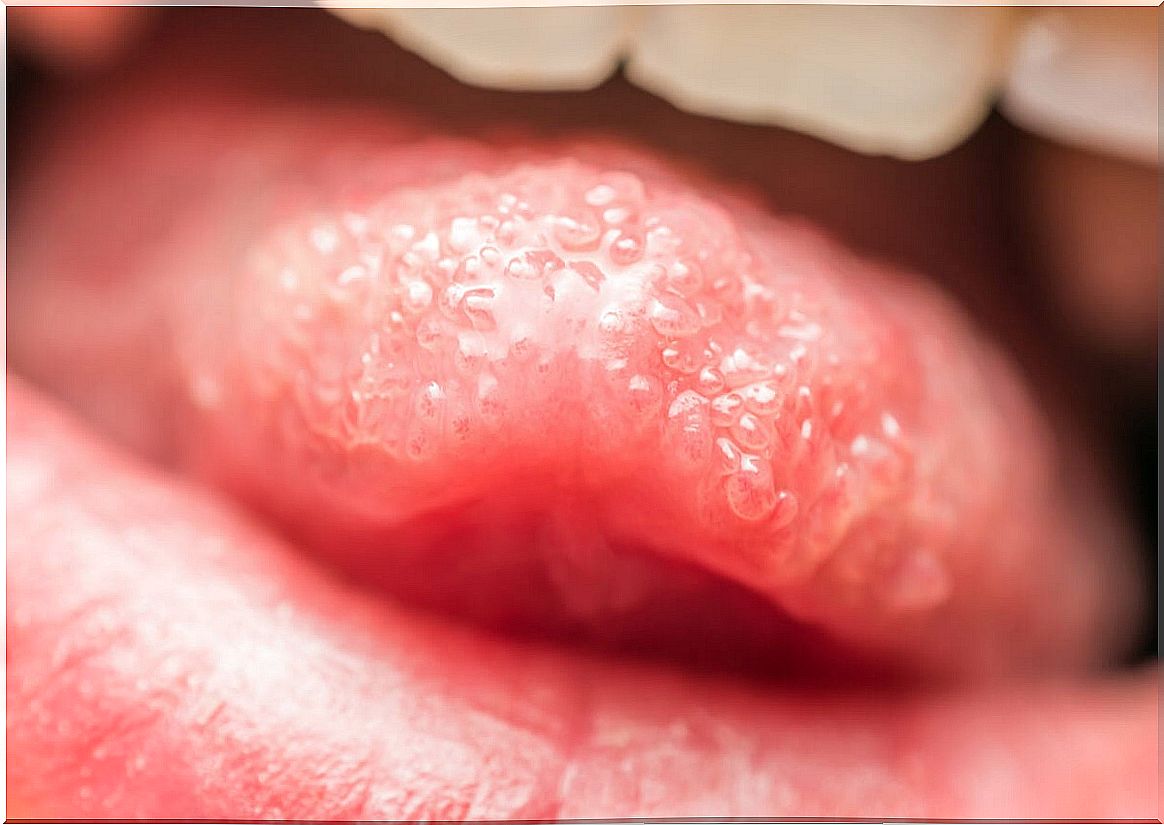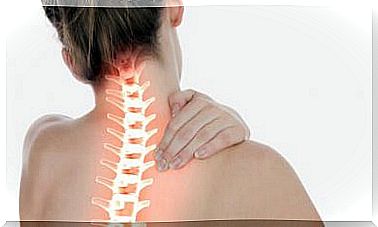Bitter Mouthfeel – What’s Causing It?
The sensation of having a bitter taste in the mouth is called “dysgeusia” and can be more than just a passing annoyance. Read on and find out what it is about.

Persistent bitter mouthfeel has a name: dysgeusia. It affects the perception of what we eat and drink, preventing us from enjoying a good meal or a good drink.
This sensation can be a normal reaction when we consume any medicine or food that leaves this taste in our mouth. But the fact that it becomes chronic or is noticed even when we eat sweets is a sign that something is not right.
In this article we will know what dysgeusia is, what are the possible causes of the bitter sensation in the mouth and what we can do to overcome it.
What is dysgeusia and how is it diagnosed?
The sense of taste is complex. In part, flavors result from the interaction of what both smell and taste buds perceive. Likewise, taste is conditioned by cultural as well as personal factors.
Now, whatever our predilection, we can notice when there is an alteration. A distortion with a persistent bitter sensation in the mouth, even when we are not eating, is what is known as dysgeusia.
Diagnosing dysgeusia can be tricky. It is done by exclusion or discard of other origins, checking for infections, nutritional problems or deficiencies, reflux disorders, among others.
Symptoms of dysgeusia
Apart from the bitter sensation in the mouth, other symptoms may occur in dysgeusia, such as the following:
- Burning sensation in the chest long after a meal. This should not be confused with angina pectoris.
- Problems or difficulties swallowing some bites.
- Dry mouth sensation (xerostomia) or pasty, caused by decreased saliva production. It is noteworthy that this symptom can be both the origin and the effect of dysgeusia.
- Bleeding and inflammation of the gums, associated with periodontal disease.
- Bad breath: halitosis.
- Loss of appetite and even the sense of smell.
Persistent bitter mouthfeel should not always be considered a red flag. However, medical attention should be sought if other associated symptoms occur, such as difficulty breathing or swallowing, swelling of the mouth, lips, or tongue.

Possible causes of bitter mouthfeel
The causes of dysgeusia respond to a variety of factors related to diseases, drugs, food, habits and lifestyle. However, the reasons why the bitter mouthfeel persists are not necessarily serious.
Diseases
Certain diseases, such as sinus infections or colds, can be accompanied by dysgeusia, since the body produces substances to fight harmful elements or to reduce inflammation. These substances affect the taste buds.
Disorders and conditions associated with dysgeusia include the following:
- Gastroesophageal reflux disease: in this condition the upper stomach sphincter is affected, allowing acid to reach the esophagus. In addition to irritating, it causes a burning sensation in the throat, chest and abdomen, as well as a bitter taste in the mouth, heartburn and bad breath.
- Oral candidiasis: This is an infection caused by the Candida albicans fungus . It is common in people with immunodeficiency as well as in babies. It causes whitish lesions on the tongue, inner cheeks, and throat.
- Nerve injuries, neurological disorders, brain surgeries: as in the other senses, in taste there are nerve connections that go from the papillae to the brain. Various injuries and disorders can alter the perception of flavors. This is seen in patients with multiple sclerosis, brain tumors, and Bell’s palsy.
- Other disorders: gingivitis, glossitis, nasal polyps, salivary gland infection, and Sjögren’s syndrome.
Medicines
Research on the subject has found that there is a wide variety of drugs that cause dysgeusia. This is due both to their bitter or metallic taste and to the fact that the compounds, in contact with saliva, generate that sensation.
Medicines that can cause a bitter mouthfeel include the following:
- Antibiotics: tetracycline, ampicillin, and metronidazole.
- Medications for heart failure and high blood pressure: antiarrhythmics, statins, and diuretics.
- Lithium-based drugs: for the treatment of bipolar disorder, as well as other psychotropics (antipsychotics and anxiolytics).
- Chemotherapy: Even radiation can affect the taste buds.
- Medications for neurological disorders: such as those used in Parkinson’s disease, Alzheimer’s disease, or migraines.
- Bronchodilators: used to treat asthma and chronic obstructive pulmonary disease (COPD).
Other causes
Zinc deficiency is also one of the most common causes of taste disturbances. This deficiency can be due to a lack of this mineral in the diet or due to poor absorption, due to diseases such as celiac disease, Crohn’s disease, diabetes or pancreatitis.
Both in pregnancy and menopause, due to hormonal changes, women may experience the sensation of bitter taste in the mouth. Estrogen can alter the way your taste buds work.
Dental problems due to poor oral hygiene, cavities, gingivitis and dental surgeries cause dysgeusia. In addition, there are other causative factors, such as high levels of stress and lead contamination.
Treatments and home remedies to mitigate bitter mouthfeel
Dysgeusia can resolve on its own without requiring medical intervention. In other cases, treatment depends on identifying and resolving the cause.
If it is a drug, the alternative is to suspend or substitute another. Changing the time of consumption can also help. Similarly, if dysgeusia is related to a dental or dental hygiene problem, appropriate measures must be taken, going to the corresponding professional.

Home remedies
There are several things you can do at home to ease a bitter taste in your mouth. One of them is to maintain adequate hydration, as well as chew gum (preferably without sugar). This helps increase saliva production.
Second, you must have good dental hygiene habits. From gentle brushing for two minutes, two to three times a day, to flossing, to antibacterial rinsing if recommended by a dentist. Also the water with salt or bicarbonate help.
On the other hand, you should avoid excess alcohol, caffeine and certain spicy or high-fat foods. Above all, quitting smoking is vital.
Bitter mouthfeel is almost always treatable
A bitter taste in the mouth is usually a common problem whose causes can be treated. In most cases the taste buds return to normal without permanent effects.
A bad taste in your mouth shouldn’t be a cause for concern. However, it is a sign that something is wrong, so you should see a doctor. On the other hand, the quality of life can be affected, preventing us from enjoying food.









